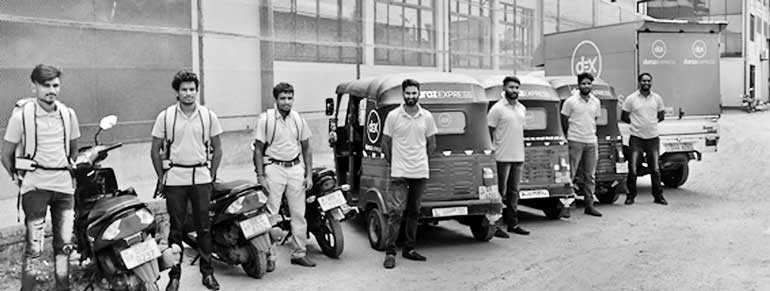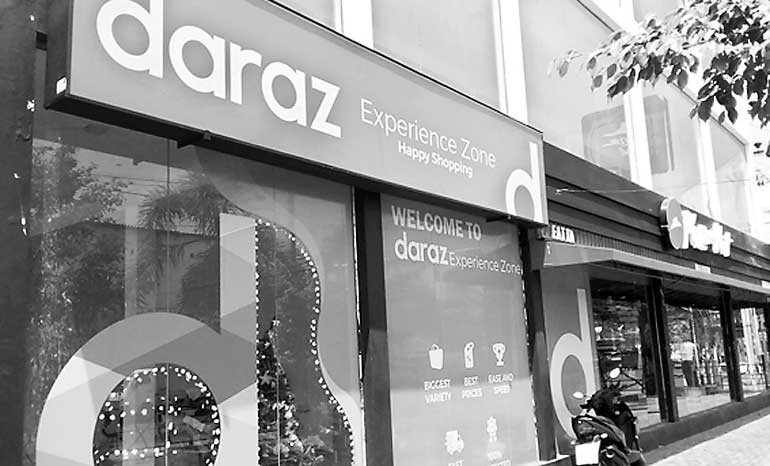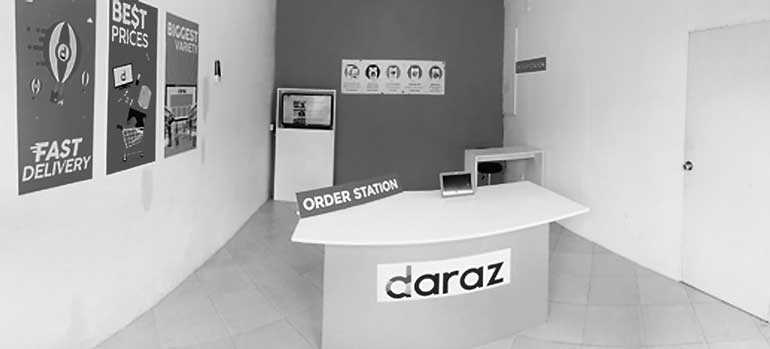Tuesday Feb 24, 2026
Tuesday Feb 24, 2026
Saturday, 16 March 2019 00:28 - - {{hitsCtrl.values.hits}}

Online retail is fast capturing the local market and expanding to regions beyond the city centres. The leading e-commerce online shopping platform Daraz recognised the importance of decentralising operations and establishing regional hubs as early as within the first year of inception in Sri Lanka. As a result, Daraz Express (DEX) Hubs are currently located in 14 districts across the country and plans are underway to reach up to 20 regional hubs by the end of 2020. 
Apart from Colombo which is the primary market, Gampaha, Kandy and Kalutara follow closely in terms of volume, with a record of at least 4,000 shipments per month. Jaffna and Kurunegala are fast picking up and so is Badulla. Records show that e-commerce is growing in areas such as Ampara, even without DEX Hub operations being set up yet.
Explaining the spread of the Hubs, Daraz Sri Lanka CEO Darshika Attanayake stated that the primary objective of launching the hub structure was to fulfil the needs of the markets to which the third party logistic (3PL) partners could not cater, and connect the sellers and buyers faster.
“The whole exercise is to increase efficiency and create a seamless process from the point of shopping to delivery. A review of the market is conducted to understand the volume and sustainability of the business prior to the hub being set up. With the growth of Daraz, it is important that the logistic arm too grows in parallel. Therefore, having our own system enables us to provide a faster service.”
Further advantages of DEX Hubs is the visibility of tracking the delivery, a faster lead time and the build of trust amongst the buyers and sellers. The latter is established through customers having a physical location for any point of transaction, from ordering to picking up the package or returning it. Each DEX Hub consists of a minimum of four riders, an administrative officer and a customer service personnel.
This decentralised operation allows regional level interaction with stakeholders to get further enhanced in the Daraz community. The Hubs also operate as education centres for those who are new to online shopping, where they are helped throughout the process by Daraz agents.

DEX operates an overnight shuttle in order to ensure that the package reaches the designated region from the sorting centre the next morning and the first attempt of delivery to be done the same day. The advantage of the lead time is given to the customer, with the only limitation being the time taken for the seller to provide the shipment to Daraz. From a perspective of branding, DEX facilitates brand visibility for Daraz, with branded fleet and drivers and riders zipping across the island.
These developments have shed a positive light for Daraz, which is evident in a 50% month-on-month growth in regions where DEX Hubs are maintained. DEX Head Arun Joseph points out that in Kandy, Daraz previously handled around 600 packages, which grew up to approximately 2,500 packages a month since DEX operations commenced. “The trust factor and quick delivery has an immense impact on the business,” added Arun.
“We see a lot of appetite for e-commerce in the market and it is also on the basis that Daraz has been able to grow its business five-fold over the past years. We strongly feel that the logistics market has a huge potential in Sri Lanka and a lot of room for improvement, which includes improvement from our end as well,” continued Darshika.
Future developments through DEX would include enabling visibility for customers through live tracking, and improved communication. The option to pick up a shipment at the convenience of the customer will also be enabled through the Hubs.

A more sustainable value addition to the industry would be Daraz’s plan to share the global technology with regional logistic providers. The proposed hybrid system would mean that Daraz would provide and manage the technological infrastructure, while the execution will be handled by the partners. This strategy would also create space for 3PLs to grow on their own with Daraz as a benchmark. Inventory management is key to an efficient logistics operation. In theory, an e-commerce platform would operate in a zero-inventory model. However, Daraz bends the rules with the aim of providing a swift service. FMCG products are purchased and held in store in order to cut down lead time by 2-3 days. To further enhance the system, plans are underway to hold inventory for categories such as smartphones in Sri Lanka, home appliances and laptops in Sri Lanka that are in high demand. Inventory management plays a major role, especially during campaigns where sales are higher than usual. According to Darshika, the very first 11.11. or Single’s Day campaign in Sri Lanka, was a learning exercise for the operations.
“There were close to 190,000 shipments during 11.11. and the market in total could handle only around 90,000. A bulk of it was handled through DEX. A campaign of such magnitude takes almost a year to plan and the entire logistics ecosystem has to be in collaboration. The DEX Hub system is part of the road map towards the end of this year when the next 11.11. is launched. We are on the quest to establish the optimum model for our tier one campaign,” he concluded.